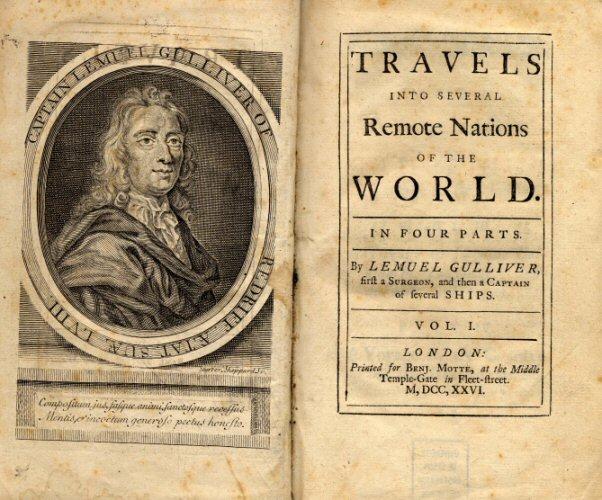July 9, 2019
Why did I write a book?
The question that is asked most frequently of me is why I chose to write a book.
The most honest answer to this question is because I always wanted to. There is a fascinating permanence to the written word. Long after an author has departed this plane their works are remembered and discussed. I possess a curiosity and interest in many things, and thoroughly enjoy civil discussion on a wide range of topics. Writing a novel presented me with a platform to share ideas and thoughts with people who might never otherwise know anything of me. This drive has only been amplified now that I am a father to two wonderful children. I want them to have something of me that they can keep and pass down for generations. I hope that they will be proud of their father for his work. This leads into the second most common question that I’m asked:
Why Gulliver’s Travels?
Why Gulliver’s Travels? I read the original story to my son before he could speak. I used to read classic stories to him while he lay in the crib. Mostly, I’m certain, he was listening to the sound of my voice, so I wanted to read something that I would enjoy. I read a number of great stories, but Gulliver’s Travels spoke to me differently. First, as a satire, I enjoyed some of the subtle humour, but as importantly, I saw that much of the satire, once edgy and vexing, was now seriously outdated.
A few may be familiar with the Tory and Whig parties in England in the 1700s, more are aware of the protestant/catholic split, but frankly, much of the satire of the original novel is lost on modern readers without significant additional work. I saw an opportunity there to update the satire with modern reflections. The themes remain valuable, and I hope to reinvigorate some of their content.
While a classic novel, beautifully written, it also contains some super-racist parts. The most memorable to me was:
My horror and astonishment are not to be described, when I observed in this abominable animal, a perfect human figure: the face of it indeed was flat and broad, the nose depressed, the lips large, and the mouth wide; but these differences are common to all savage nations, where the lineaments of the countenance are distorted, by the natives suffering their infants to lie grovelling on the earth…
I remember reading those words to my infant son and thinking, “holy crap, I just said those words out loud.” The Yahoos are black, and he compares them to monkeys, with a patronizing tone. I wouldn’t suggest to know Mr. Swift’s true thoughts. He does write satire after-all, but while much of the book is progressive, this appears to betray an 18th century European attitude towards the “savage nations.”

Gulliver’s Travels also appeals to me because it consistently asks “What if?” questions. What if you landed alone on an island of giants, tiny people, civilized horses, immortals, or necromancers? One of the neat things about this story is that anybody can think of what they would do in a similar situation, which is the place from which I took off.
Why use a formal, antique, writing style?
Those who know me best know that this is generally how I write anyway. Good friends have been tickled by reading the preface of the story and responded that they thought it very typical of my style. Additionally, I wanted to pay respect to the original author, Jonathan Swift. I find his writing to be excellent, and a nod to his talent I felt was more than merited.
To what end?
This question goes back to the first. I’ve joked that I want to be a famous author, and to become rich and wealthy… That would be nice, but it really isn’t the intention. The odds of any one story reaching the necessary sort of acclaim are puny. More than anything else, I hope that people read my story with an open mind, smooth over any clumsiness of my pen, think about the ideas that are either openly presented or hidden behind metaphors, similes, and satire, and talk about them. I’m am as excited by somebody disagreeing with my ideas as someone who agrees, as long as arguments are presented respectfully. I hope that On Swift Wings generates discussion, and in some way makes the world a better place.
Charity
One more thing that has inspired me was a story that I heard during the London Olympics in 2012. There was a small tribute to Peter Pan. The author, JM Barrie, donated the copyright to the Great Ormond Street Hospital eighteen years after it was published. This has provided funds for the hospital ever since, and by special clause inserted into British copyright law, the hospital retains that property outside of public domain in perpetuity. I think this is a beautiful and generous act. As a result, I have decided to donate 20% of my royalties to the Alberta Children’s Hospital, while raising funds through promotions and other activities. Should I be in a similar position in 18 years, I should like to do the same, and donate all future royalty to the ACH.